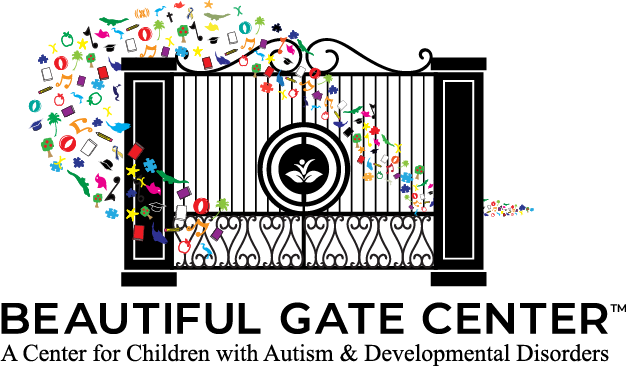Therapy Clinic
Speech-Language Pathology
Parents and caregivers are encouraged to speak with the Speech–Language Pathologist (SLP) about any concerns, or questions they have about their child’s communication and feeding/swallowing skills. SLPs are always interested in talking about changes observed at home, perceived progress in therapy, collaborating with educators, or suggestions for carry-over of skills in the home and community.

What are Speech–Language Pathology services?
Children and adults with communication challenges, or who have difficulty with feeding and/or swallowing will often benefit from the services of a Speech–Language Pathologist (SLP). A diagnostic plan and comprehensive evaluation is performed to determine goals and objectives unique to each child.
Some of areas of diagnostic plan might include, but are not limited to:
- Assessment of oral–motor skills and assessment of oral anatomy and physiology
- Hearing screening
- Verbal and written expression
- Written and verbal comprehension
- Auditory processing skills
- Functional communication abilities
- Voice and resonance
- Fluency/stuttering
- Articulation and phonology
- Attention and memory abilities
- Problem solving, reasoning, and organizational skills
- Reading, spelling, and literacy skills
- Feeding and swallowing ability
- Alternative and augmentative communication needs
- and more….
Speech therapy interventions address functional communication using positive reinforcement, evidence–based practices, and a team–based, family-centered approach. Parents and caregivers play an important role on the team that works cooperatively with the individual and therapist.
Would my child benefit from speech therapy?
Speech-Language Pathologists (SLPs) work with people of all ages who have difficulty with communication. Working with children at an early age, is most recommended for an overall improved quality of life. This includes difficulty pronouncing words, understanding others, knowing what words to use, or thinking / remembering as well as helping individuals with feeding and swallowing disorders learn to expand the types and textures of the foods / drinks they are able to accept and safely swallow.
Individuals who have trouble interacting with others and understanding social cues often benefit from speech therapy services.
Speech-Language Pathologists are trained and credentialed to work cooperatively with other professionals (e.g. special education teachers, behavior analysts, physical therapists, occupational therapists) in order to maximize each child’s progress toward safe and efficient feeding / swallowing and to develop a functional communication system in a variety of settings.
